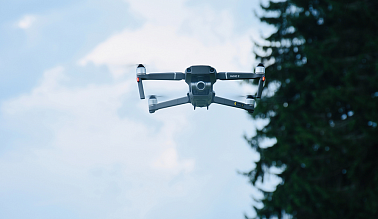Smart Farming: How Big Data impact Agriculture
19.08.2019 | Smart Farming
The spread of new technologies in the agricultural sector, the use of intelligent machines and sensors leads to an increase in the amount of data that is managed by the processes. The use of IoT (Internet of Things), cloud computing, machine learning and other technologies has led to the emergence of the term "Smart Farming phenomenon". This is significantly different from precision farming because it simply takes into account the variability of field conditions, and Smart Farming covers many aspects beyond the scope. The management tasks in this case depend not only on the conditions of the location, but also on the context of the situation in real time.
What is the role of data in Smart Farming Using Big Data in agriculture has great potential.
The services become available even for those who have not worked with big data before. Now they can take decisions and actions on their own, only need to define tasks. For flexible actions, there are auxiliary functions that can report changes in conditions in real time (e.g. changes in weather or disease).
The Smart Farming concept is that intelligent devices connected to the Internet control the farm system. The devices extend the familiar tools and allow you to stay abreast of the situation thanks to sensors and built-in intelligence, which can perform actions autonomously.
The variety of these devices allows you to work at different levels:
The first is fieldwork, i.e. a technique that collects data on route, fuel and seed consumption
Analytical tools in combination with monitoring tools can track soil and moisture content, make weather forecasts, obtain field imagery, produce maps and assess crop conditions
Services collect data, process and compile analytical reports in an accessible form. Programs can only focus on one task, such as data collection, or they can be combined. The chain includes all stages from data collection to decision making and marketing.
Existing problems
There are a number of problems that need to be solved in order to successfully disseminate and use big data in agriculture:
Security
Privacy issues arise quite often, and we have heard a number of times about the illegal use of data by various enterprises (e.g. banks). Data security must be ensured properly, but still not controlled too strictly, otherwise the process of active implementation may take much longer.
Data quality
The quality of the data is a key issue today for farm management information systems and for Big Data in general.
Analysis
These are often unstructured, heterogeneous data that require the participation of experienced analysts and subject matter experts.
Sustainable integration of data sources
It should be possible to integrate a large number of sources for the full implementation of the business model. Transparency Openness and transparency of the platforms will significantly accelerate the development of solutions and implementation of innovations in general.
Forecast
The spread of Big Data in the agricultural sector will lead to major changes and transformation of the classical business system. Analytical processes will be much faster and more accurate, which may lead to the development of new business models. The management of farm operations will change dramatically due to the ability to track data in real time, predict and use it to automate farm operations.




